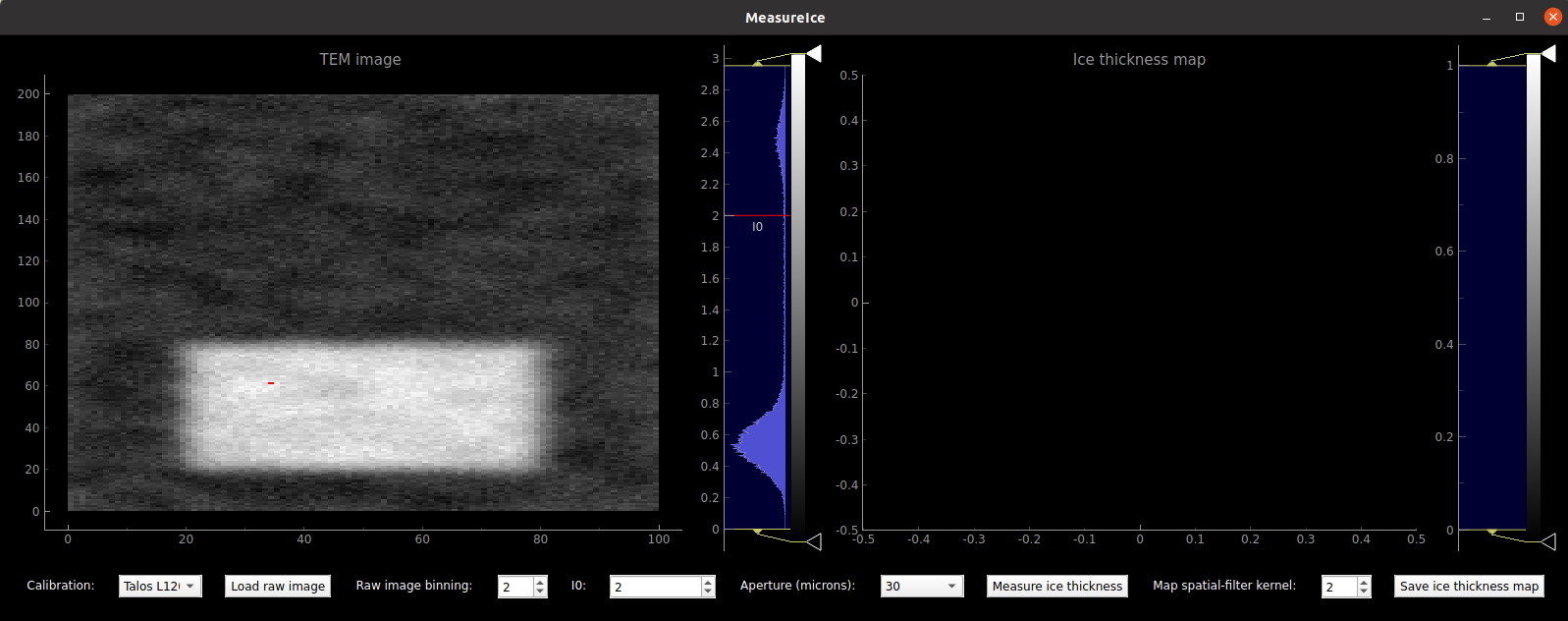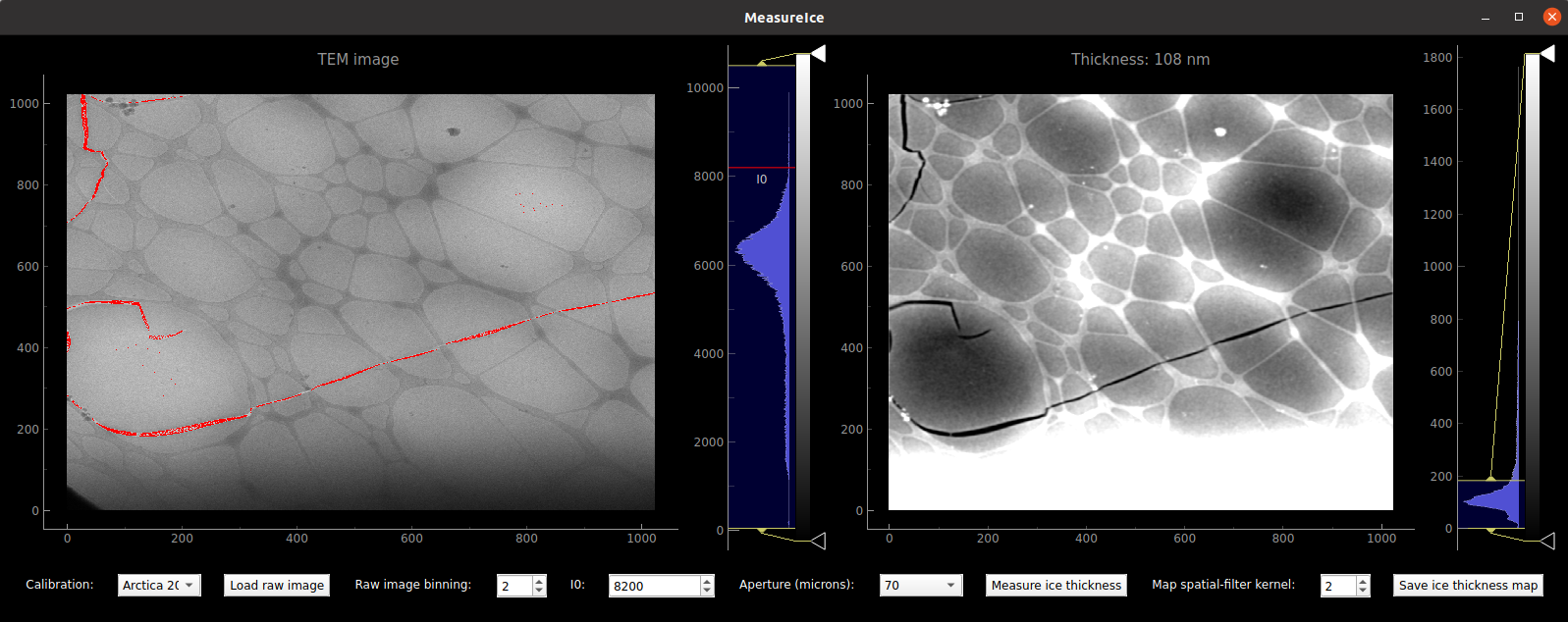A software tool for measuring ice thickness on the fly in cryo-EM
- Clone or branch this repo and the py_multislice package into a directory on your computer. Using a Linux or Mac command-line or git bash on Windows:
$ git clone https://github.com/HamishGBrown/Measureice.git
$ git clone https://github.com/HamishGBrown/py_multislice.git
- It's best to create a specific anaconda environment within which to run the utilities. Within your terminal (linux and mac) or Anaconda interpreter (Windows):
$ conda create --name measureice
$ conda activate measureice
-
The multislice package requires the pytorch library to be installed for calculations on the CPU and GPU. Since the multislice component of the MeasureIce simulations is not particularly intensive and compatability between different systems and version of CUDA etc. can often cause severe headaches it is almost always simpler just to use the cpuonly version of this library eg:
$ conda install pytorch torchvision torchaudio cpuonly -c pytorch -
In your terminal or Anaconda interpreter navigate to measureice directory and run the
pip installcommand:
$ cd py_multislice
$ pip install .
$ cd ../Measureice
$ pip install .
- First you'll need to generate your calibration data. You need to know your microscope's accelerating voltage and the size of the apertures (in diffraction plane units like inverse Angstrom or mrad, not micron, you can measure this with a diffraction standard like a gold grid). Run
Generate_MeasureIce_calibration.pywith the--helpargument to get more information on how to use the utility.
$ python Generate_MeasureIce_calibration.py --help
Usage:
python Generate_MeasureIce_calibration.py -E 300 -A 9.9,15.0 -u mrad
Generates calibration files for MeasureIce utility
for measuring ice thickness in cryo-EM
-E, --Electronenergy Electron energy (in keV)
-A, --Aperturesizes Aperture sizes in inverse Angstrom (default) or mrad
-u, --Units Aperture size units (invA by default or mrad), optional
-m, --Aperturemicron Aperture sizes in microns (for labelling of output), optional
-o, --Outputfilename Output .h5 filename (default Calibration.h5), optional
-M, --Microscopename Name of microscope (For book-keeping), optional
-P, --Plot Generate reference I/I0 vs thickness plot, optional
-I, --imfp User provided electron inelastic mean free path in nm, optional
- Once you have succesfully generated the calibration data, you can run the GUI utility:
$ python MeasureIce.py
It will search for .h5 calibration files in the current directory. Alternatively, you can provide a directory containing the calibration files:
$ python MeasureIce.py /path/to/calibration/files
Failing either of the above approaches MeasureIce will simply prompt you for calibration files. The GUI should look like this.
Choose a calibration file (this will match the --Microscopename you gave to Generate_MeasureIce_calibration.py, if none was supplied it will be a something more generic like 200_keV_TEM), load an image (accepts .mrc, .tif or .ser) with the Load raw image button, set I0 either by dragging the red line on the TEM image histogram or manually input into the I0 box and click the Meaure ice thickness button. You can read off ice thickness values using by hovering your mouse pointer over the region of interest in the ice thickness panel.
Ice thickness maps can be saved in 32-bit tif format or a matplotlib imshow plot in pdf or png format.
You can package the program as a stand-alone executable, eg. to run on a microscope support or control PC, using pyinstaller. If you want to run the program on, for example a Windows PC, you'll need to do this step on that operating system.
$ pip install pyinstaller
$ pyinstaller -i icons/icon.ico --onefile Measureice.py
An executable, Measureice.exe, should appear in a new folder named dist. You can transfer this to your microscope PC, remember to also transfer your .h5 calibration files as well.
This work was done in partnership with Prof. Eric Hanssen at the Ian Holmes Imaging Center. Code for reading ser files is written by Peter Ercius of the National Centre for Electron Microscopy.

